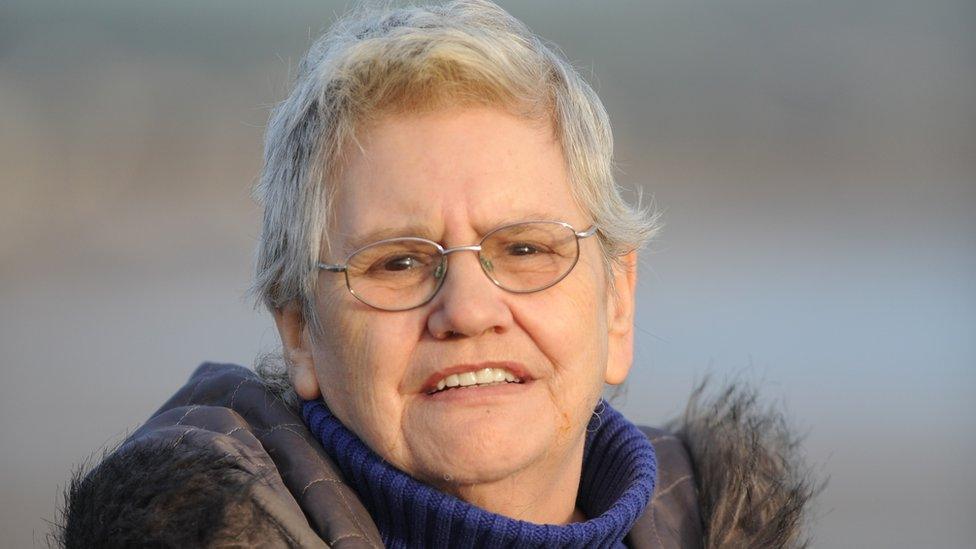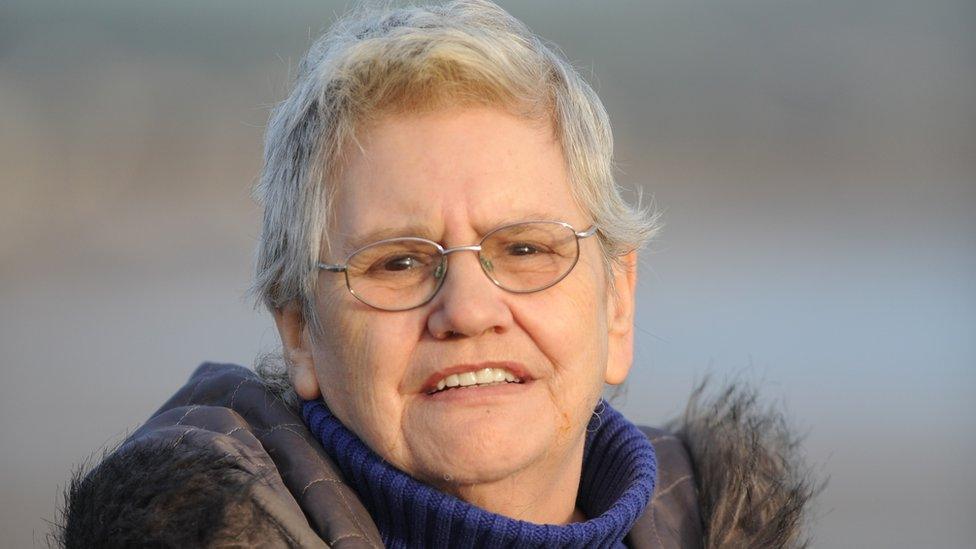Lifetime management: What are Serious Organised Crime Prevention Orders?
- Published

Gerard Docherty, Steven McCardle, Francis Mulligan, David Sell, Barry O'Neill and Martyn Fitzsimmons were jailed for a total of 87 years
Nine members of a crime gang responsible for importing industrial quantities of cocaine and firearms into Scotland are facing Serious Organised Crime Prevention Orders on top of jail terms totalling 87 years.
So what does this mean?

What are Serious Organised Crime Prevention Orders?
Serious Crime Prevention Orders (SCPOs) form part of the Serious Crime Act 2015 and have been available to courts since March 2016.
SCPOs are designed to ensure the "lifetime management" of criminals, including their business dealings, communications and movements once they are released from jail.
The orders can also limit their access to mobile phones and require them to notify police about all foreign travel.
In theory, they are designed to make it as difficult as possible for offenders to return to a life of crime when they are released.
The model has been compared to the management of sex offenders in that it can place restrictions on criminals until they day they die.

Have they been used before?

Isabella Jackson was jailed for 45 months and given an SCPO in June last year
Until the orders were imposed on gang members Gerard Docherty and Steven McArdle the powers had only been used three times in Scotland.
Isabella Jackson, 72, was jailed for 45 months and given an SCPO in June last year after pleading guilty at Kirkcaldy Sheriff Court to sending death threats to Prime Minister Theresa May.
She also admitted making bomb threats to the London store Harrods, Edinburgh Airport and King's Cross Station in London.
The SCPO order means her activity can be restricted for a period of five years beginning from the date she is released from prison.
It also affects the number of communications devices she can own and police must be notified of any change of device or account she has.
The pensioner must also declare all online and social media accounts.
She was previously jailed for two years after she sent email threats to the US Embassy in London claiming there was a bomb on a plane and emails which said the then US President Barack Obama was "to be killed".
Scotland's second SCPO was imposed on gun and drug trafficker Dean Kimmins in 2017.
Kimmins, 33, from Maryhill, Glasgow was jailed along with three other men in October 2016 for a scheme that saw deactivated guns turned into firearms.
The court heard he had a "managerial role" in directing two men to collect a large heroin load.
William Wilson, 37, was the recipient of the most recent SCPO.
He was jailed for five years in December after he admitted two of charges of supplying drugs and two firearms offences.
The SCPO, which will last for three years, stops him from owning any chemicals which could be used to produce controlled drugs or new psychoactive substances.
It also says he cannot buy or possess chemicals which could be used as cutting agents or drug manufacturing equipment and restricts his ability to own communication devices, including phones and laptops.
Wilson is also required to let police know of all premises he owns or occupies and of any intention to change his name.

What else is being done to target criminal assets?

The Proceeds of Crime Act (2002) grants the courts various powers to hit criminals in the pocket.
They include seizure of cash, criminal confiscation orders, restraint orders prohibiting property dealings and taxation of profits generated from crime.
But from 31 January an amendment to the act will introduce Unexplained Wealth Orders (UWO).
It will require individuals suspected of "serious crime" to explain the source of any property owned by them valued at more than £50,000.
Previously it was up to police to prepare a case but the burden of proof will now switch to the suspects.
And, crucially, an individual may therefore be made subject to an UWO regardless of whether any related court action has been raised against them.
- Published22 January 2018

- Published22 January 2018

- Published11 December 2017

- Published25 May 2017
